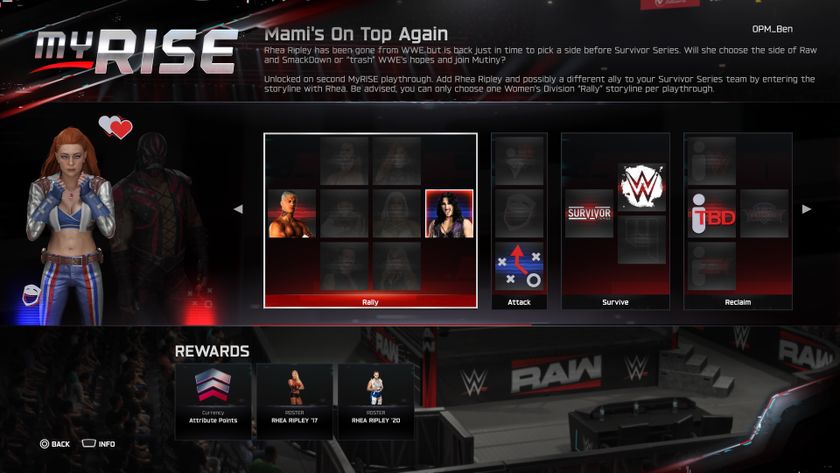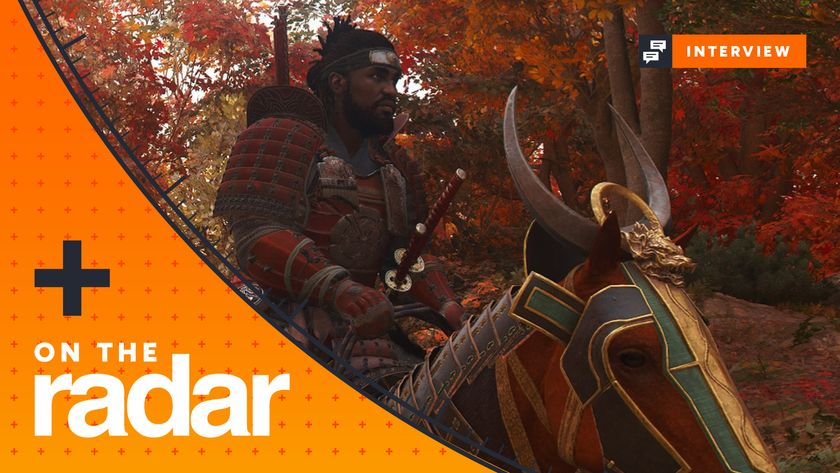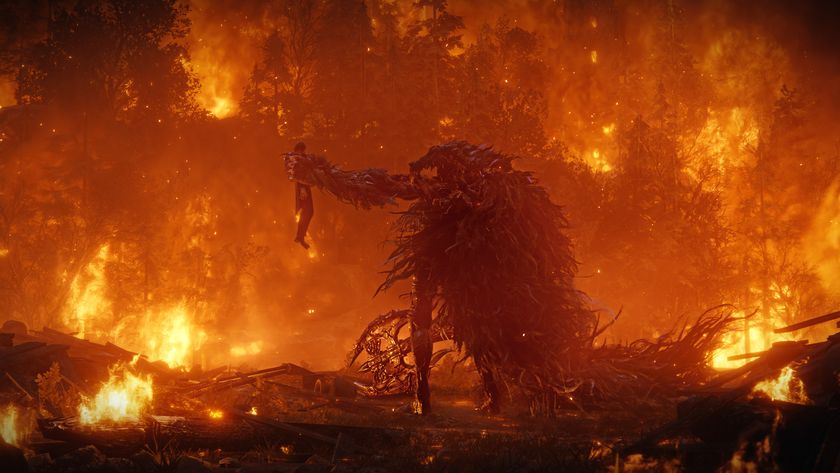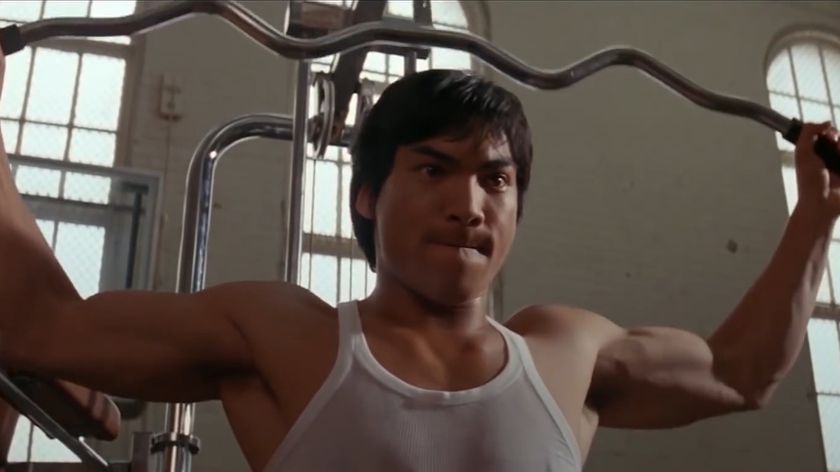Strategy RPG Unicorn Overlord supposedly takes 60 hours to beat – it took me 240 and is now one of my favorite games of all time
Opinion | Why this amazing game took me twice as long as Elden Ring
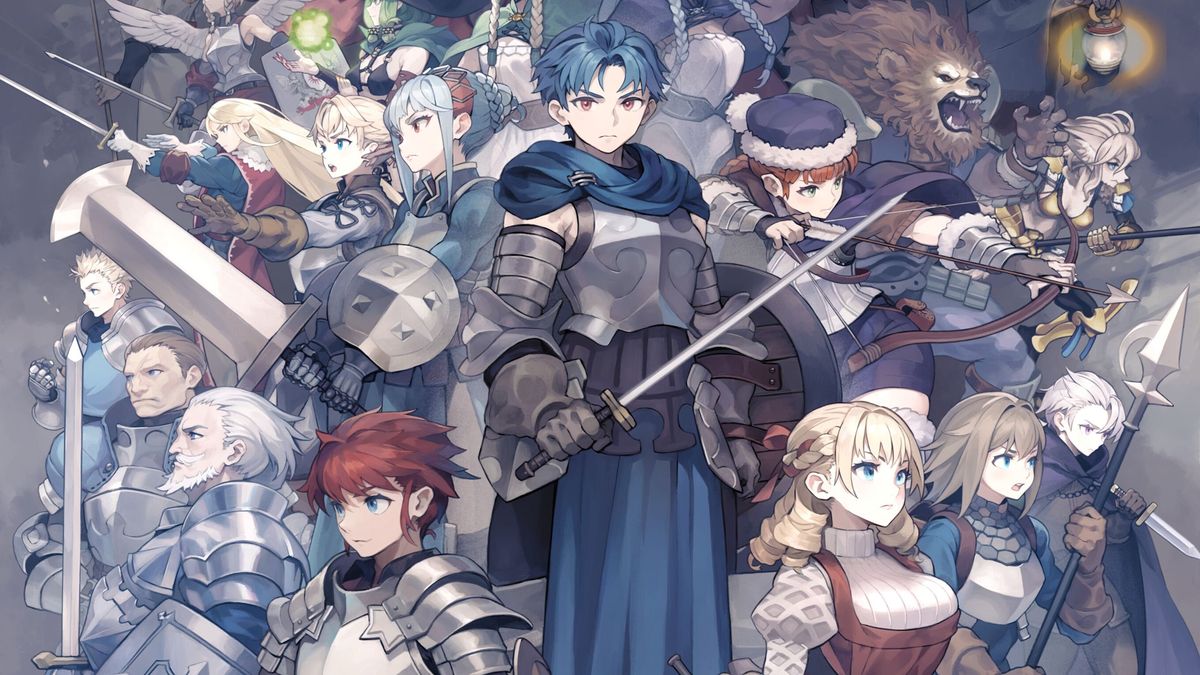
It is such a joy to find something that feels tailor-made for you, an experience that hugs your brain like a professionally fitted jacket hugs your shoulders. This approaches the feeling that I got from Unicorn Overlord, a strategy RPG released by Dragon's Crown and 13 Sentinels: Aegis Rim developer Vanillaware in March 2024, but doesn't quite describe it.
Unicorn Overlord is the kind of game that drives me to run my fingers over my scalp in search of puncture wounds just to make absolutely certain that someone didn't harvest my brain tissue and use it to culture this game in a laboratory. It is an almost frighteningly spot-on distillation of what makes me tick. After 240 hours in a single playthrough – double my first Elden Ring clear, and 100 hours longer than my Baldur's Gate 3 run – it is one of my top three favorite games of all time. It's Hollow Knight, Elden Ring, and this, which is about the highest praise I can give.
Let me be clear: Unicorn Overlord is not 240 hours long. Not even close. Don't let that figure put you off. HowLongToBeat suggests most players finish it in 45 hours for the main story, 60 hours with side stuff added in, and just 73 hours for true completionists. It's not that I'm a hardcore completionist; I never hunt trophies or achievements in games, and I spent almost no time grinding for XP or money in my Unicorn Overlord playthrough. I don't even have the platinum trophy for this game, nor will I ever get it. What I do have is the finest army I can envision, itemized and programmed and battle-tested to absurd, unnecessary extremes purely for the love of this wonderful game.
How to make a unicorn overlord
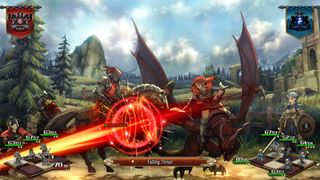
Before I fully pop the cap on the gushing praise that I've been fermenting for months like proper kombucha, I should probably explain how this game works. Unicorn Overlord is about a prince liberating kingdoms as the leader of a rebel army, but it's really about enlisting, customizing, and commanding units in real-time, 3D, free-roam battles. Your army starts as a rag-tag militia but soon swells with legions of knights on horses and wyverns, archers with crossbows and longbows, wizards, clerics, beastmen, elves, angels, and heaps of story characters with unique classes.
There's a rock-paper-scissors balancing to many units, not unlike the Fire Emblem weapon triangle. Griffin knights clobber cavalry the way cavalry chews up foot soldiers, and mages make short work of armored units who might be defending archers who make short work of the griffin knights. It's all about building squads with specific matchups in mind, and getting creative with equipment, consumables, and other units to cover weaknesses. You gain a lot of units just by recruiting the people you meet in campaign missions, but you can also hire additional mercenaries of any standard class if you want more units of a certain type or with specific stat bonuses. I had at least one of every unit, two or three of most, and up to four of some, like all-important healers and debuff-happy shamans. If I could give one tip, it would be this: use shamans.
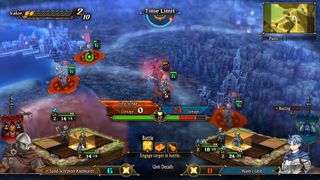
You group up to five units together as a squad, assign a squad leader who comes with unique skills used between fights, and then deploy squads in battles so that you can tell them where to go and who to fight. When your squads make physical contact with enemy squads, battle begins, with both sides exchanging blows automatically according to their combat programming. You can tell them to prioritize specific types of units, enemies with lower HP, rows or columns with the most enemies, and a whole lot more. You can only assign two programming parameters per skill, but you can make multiple entries for the same skill for redundancy that tunes things further. Units act in order of their Initiative (speed) stat until both sides are out of red (active) and blue (passive) skill resources.
The kicker with all of this is that the outcome of each engagement – how much damage both sides will take – is displayed before you actually commit to battle. This gives you time to reprogram or rearrange units, or use items to improve your odds. And because each mission's limited time pauses when you select a squad, you can freely use these predictions to scan around the battlefield and see how one of your squads fairs against most enemies, and then withdraw and adjust that squad if you appear to be on the ass end of the ass-kicking. This preparatory phase is where most of my 240 hours went.
Sign up to the 12DOVE Newsletter
Weekly digests, tales from the communities you love, and more
Suited and booted
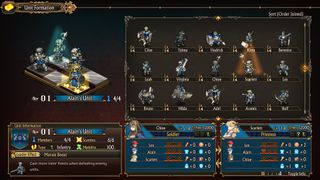
If other timelines exist, one almost certainly contains a version of me who makes a lot more money writing about math instead of writing about video games. Arithmetic in particular just activates my neurons. It's why I love making builds in Destiny 2, min-maxing artifacts in Genshin Impact, calculating critical damage ratios in Monster Hunter, and most especially optimizing units and matchups in Unicorn Overlord. Who needs caffeine or nicotine when strategy RPGs are right there?
Unicorn Overlord is a beautiful web of systems interacting beautifully. Swapping one unit, equipping the right item, or changing a single line of combat programming can totally swing the outcome of a fight in a way that I find irresistible. It encourages perfection through problem-solving. Put this unit in the back row, use a squad of four in an L formation instead of a U-shaped or F-shaped squad of five, disable this skill for this fight, swap these two frontliners to reduce damage. Don't just win. Win more. Win flawlessly. Beat squads twice your level. Lose no units, take no damage, expend no consumables.
I spent the entire game on the highest difficulty creating extra challenges for myself, like deliberately benching my strongest units if they started to become over-leveled from carrying too hard. A chain is only as strong as its weakest link. My soldiers must think I'm a terrible and abusive leader, because I would routinely spend hours at a time making my squads fight each other in the barracks just to test their programming or try a new combo. I must've logged upwards of 50 hours in menus just equipping different items, to the point that I can still remember what dozens of different units were wearing after not playing the game for weeks.
Menu Simulator probably sounds boring to some – and again, you do not have to play the game like this – but I was blind to the world around me, wholly invested in a potentially better strategy. I haven't fixated on a game like this in years, and slow-rolled it in part to make it last longer. I was crestfallen to finish it, to finally run out of the thing that I had looked forward to every evening for months. Needless to say, I was delighted to discover and blitz through the post-game content for a nice victory lap.
240 hours is still not enough
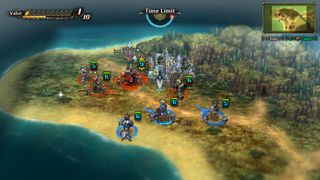
The numbers and strategies are where my head goes, but Unicorn Overlord also presents a compelling world. Literally, in a sense; outside of combat, the massive world map is filled with secrets to find and minigames to master. And when you spend 240 hours in a game, it helps that it looks and sounds incredible. The spellbinding detail that Vanillaware is known for drips off of Unicorn Overlord. Every inch is lush and extravagant. I will never get tired of watching my units attack. Seeing a griffin knight cleave an entire row of enemy cavalry is up there with the Doom shotgun, Sekiro parries, Mario triple jump, and Destiny 2 headshots on the list of video game satisfaction.
While the main storyline is thin and predictable, Unicorn Overlord is a fantastic story generator too. You spend so much time with your units that you can't help but learn more about them, or fill in the blanks yourself if needed. The clearest example I can offer would be the relationship between one of my healers and wyvern knights who, for over half of the game, were the backbone of a combo that could destroy almost any squad. I eventually disassembled this squad after finding a stronger combo, but I felt compelled to keep this healer and wyvern knight – Cordelia and Claudia – in the same squad because they'd fought together for so long. It seemed wrong to break them up. These are stamped-out mercenaries with no place in the plot, but I was embarrassingly invested in them and actively writing my own little stories.
Unicorn Overlord is one of the best strategy RPGs ever made, and for me it's the ultimate puzzle box. Poke and prod it just a little and it completely transforms in your hands. Over time, you learn to see the lines. In the same way that you can memorize multiplication, you start to understand at a glance how certain matchups are going to play out. You know instinctively what units you need, how to order them, and which saved programming loadout to equip. And right when you get comfy, you encounter a whole new unit, or a promotion for existing units, that totally upends your current strategies. This happens again and again and again, for 240 hours in my case. And every time, I'd crack a smile, gather my units, and head back to the drawing board. Back to the barracks.

Austin has been a game journalist for 12 years, having freelanced for the likes of PC Gamer, Eurogamer, IGN, Sports Illustrated, and more while finishing his journalism degree. He's been with 12DOVE since 2019. They've yet to realize his position is a cover for his career-spanning Destiny column, and he's kept the ruse going with a lot of news and the occasional feature, all while playing as many roguelikes as possible.

Deltarune's new PlayStation trophies "give rise to a pretty hard-core challenge," and Toby Fox says "it may be one of the worst ideas I've ever had"

Deltarune has finally been given a price tag, and Toby Fox says that future chapters beyond 4 "will be added as free updates" so "you only have to buy the game once"
